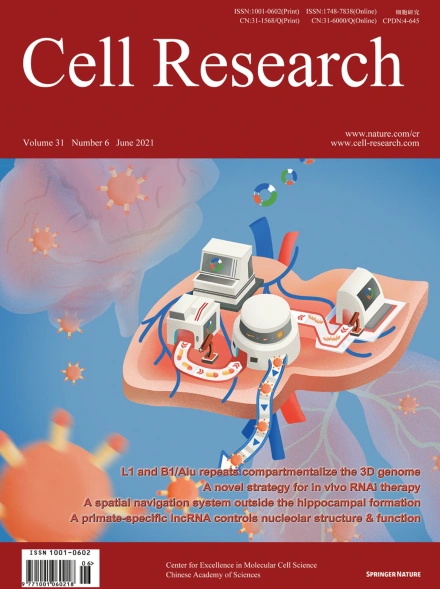
Advanced Search
Submit Manuscript
Advanced Search
Submit Manuscript
Volume 31, No 6, Jun 2021
ISSN: 1001-0602
EISSN: 1748-7838 2018
impact factor 17.848*
(Clarivate Analytics, 2019)
Volume 31 Issue 6, June 2021: 703-712
BacFlash signals acid-resistance gene expression in bacteria
Di Wu1 , Wenfeng Qi1 , Wei Nie1,2 , Zhengyuan Lu1 , Yongxin Ye1 , Jinghang Li1 , Tao Sun1 , Yufei Zhu1,2 , Heping Cheng1,2,* , Xianhua Wang1,2,*
1State Key Laboratory of Membrane Biology, Beijing Key Laboratory of Cardiometabolic Molecular Medicine, Peking-Tsinghua Center for Life Sciences, Institute of Molecular Medicine, Peking University, Beijing 100871, ChinaIntracellular pH (pHi) homeostasis is crucial for cellular functions and signal transduction across all kingdoms of life. In particular, bacterial pHi homeostasis is important for physiology, ecology, and pathogenesis. Here we report an exquisite bacterial acid-resistance (AR) mechanism in which proton leak elicits a pre-emptive AR response. A single bacterial cell undergoes quantal electrochemical excitation, termed “BacFlash”, which consists of membrane depolarization, transient pHi rise, and bursting production of reactive oxygen species. BacFlash ignition is dictated by acid stress in the form of proton leak across the plasma membrane and the rate of BacFlash occurrence is reversely correlated with the pHi buffering capacity. Through genome-wide screening, we further identify the ATP synthase Fo complex subunit a as the putative proton sensor for BacFlash biogenesis. Importantly, persistent BacFlash hyperactivity activates transcription of a panel of key AR genes and predisposes the cells to survive imminent extreme acid stress. These findings demonstrate a prototypical coupling between electrochemical excitation and nucleoid gene expression in prokaryotes.
https://doi.org/10.1038/s41422-020-00431-3